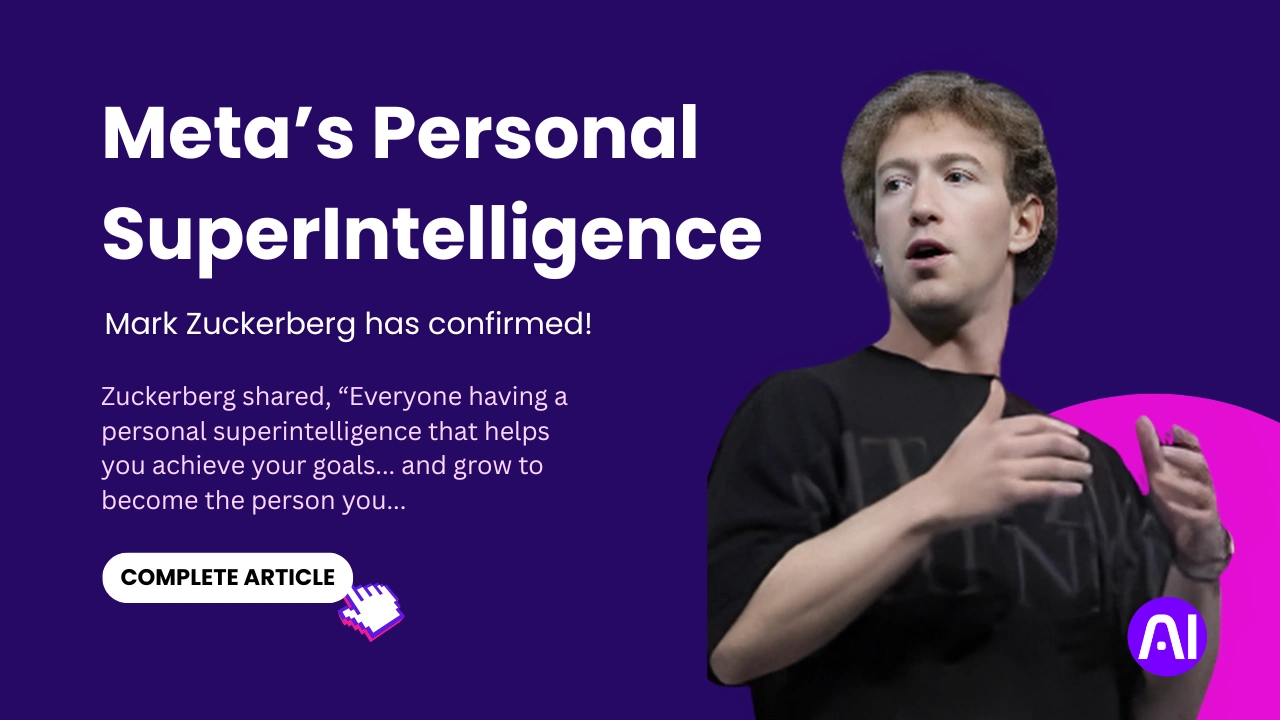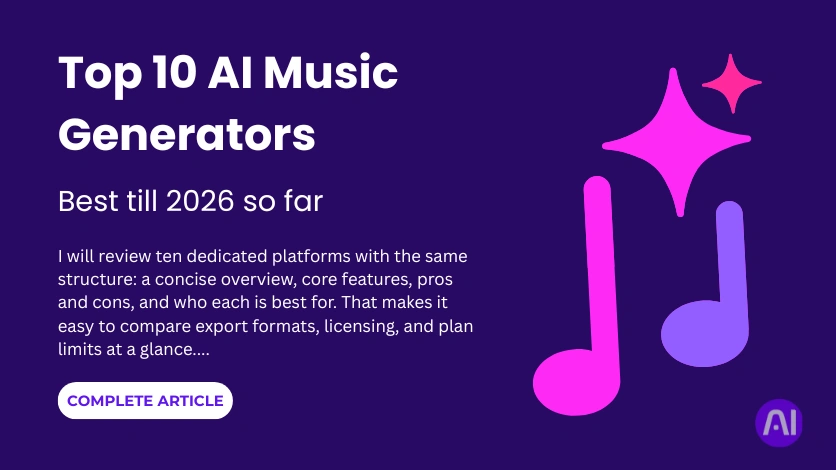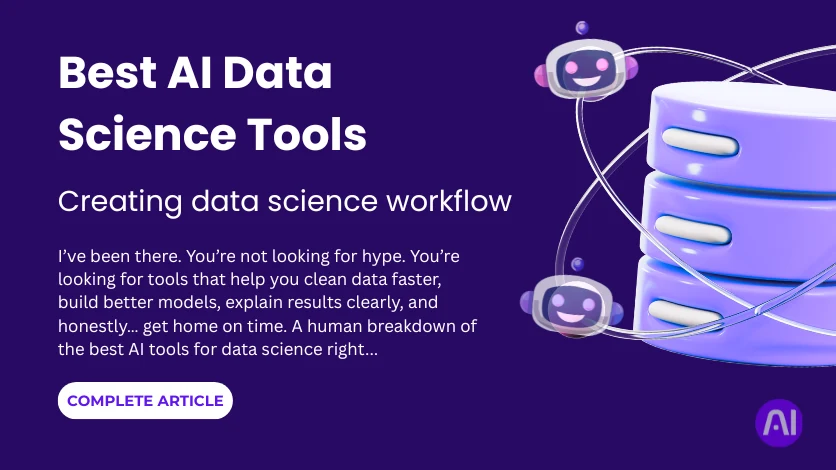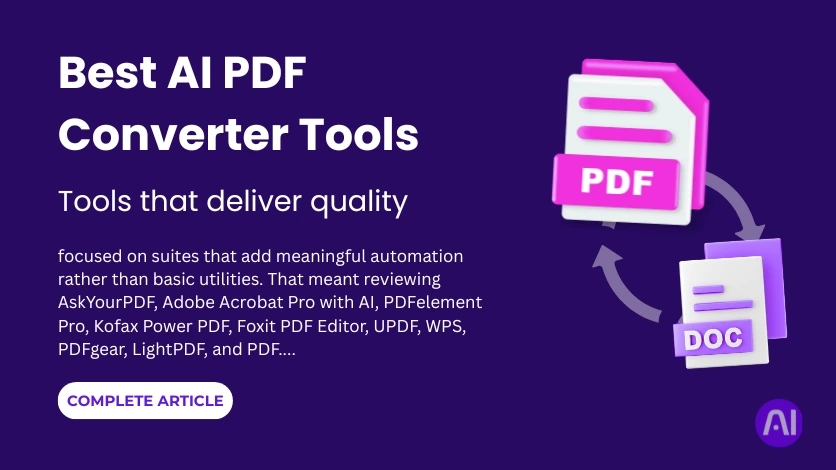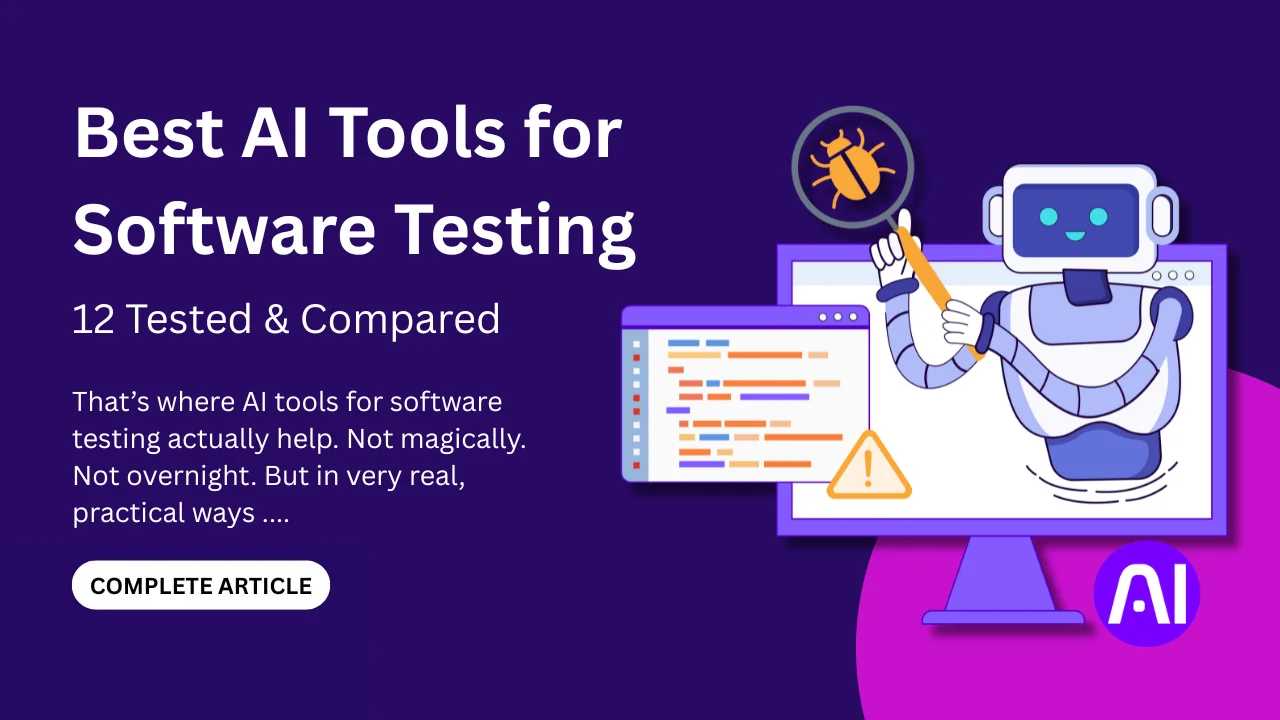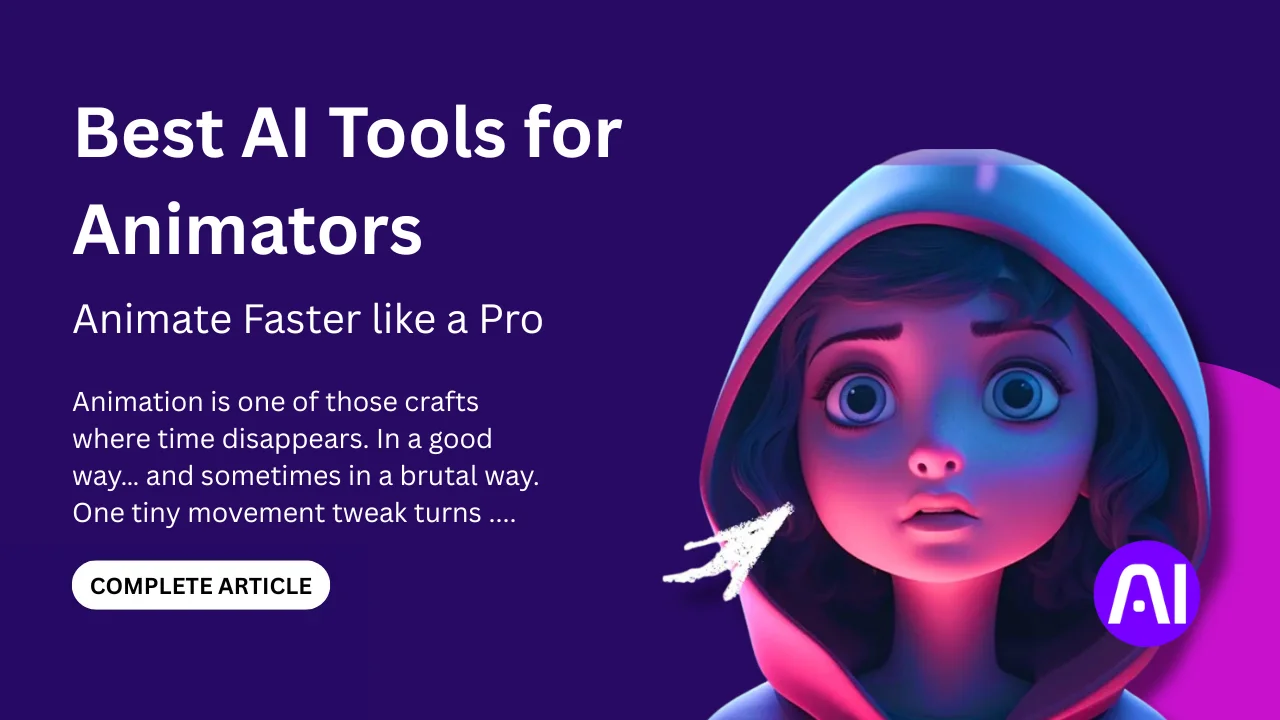Meta is now building something big: Personal SuperIntelligence. Mark Zuckerberg has confirmed that the company is working on AI that’s deeply personal, designed to help you grow, create, connect, and improve as a person. He says we’re already seeing early signs of this powerful AI taking shape.
Zuckerberg shared, “Everyone having a personal superintelligence that helps you achieve your goals… and grow to become the person you aspire to be.” His message is clear, this isn’t about robots taking over jobs, it’s about AI made just for you.
In this article, we’ll explain what Personal SuperIntelligence really is, why Meta is going all-in on it, and how it’s different from other AI trends. We’ll also cover the tools, future risks, and what this means for your personal and digital life.
What Meta Is Doing About Personal SuperIntelligence

Meta is no longer just focused on social media. It’s now stepping into the race to build Personal SuperIntelligence (PSI), a powerful kind of AI designed to grow with you. This isn’t about basic chatbots or task automation. Meta’s goal is to create smart systems that understand your goals and help you improve in life and work.
1. Building a Dedicated AI Division
To drive this new direction, Meta has created a team called Meta Superintelligence Labs (MSL). This group combines major AI projects like LLaMA and FAIR under one umbrella. The goal is to focus fully on developing advanced, general-purpose AI with PSI as the central idea.
2. Hiring Top AI Experts
Meta has brought in leading researchers from OpenAI, DeepMind, Anthropic, and more. These experts helped build major models like GPT-4 and Gemini. Reports show that Meta is offering record-breaking salaries to bring this talent on board, a clear sign of how serious the company is.
3. Investing in Powerful Infrastructure
AI needs massive computing power, and Meta is ready to provide it. The company plans to spend up to $72 billion in 2025 to expand its AI infrastructure. That includes building large data centers, designing custom chips (like MTIA), and training models using extremely powerful systems.
4. Early Signs of Smarter AI
In a recent update, Mark Zuckerberg shared that Meta’s AI systems are beginning to improve themselves. These models aren’t just answering questions anymore, they’re learning how to perform better over time. This is a key step toward creating AI that can think and grow on its own.
5. Taking AI Beyond Screens
Meta wants Personal SuperIntelligence to be part of your everyday life, not just stuck on your phone or computer. That’s why it’s building AI into products like Ray-Ban Meta Smart Glasses. These glasses can hear and see what you do, helping the AI understand your world and respond in useful ways.
6. Sharing AI Safely
Meta supports open-source tools like its LLaMA models, but it’s careful about what it shares. Zuckerberg has said that not all superintelligent systems will be made public. As AI becomes more powerful, Meta is focused on keeping it safe, responsible, and aligned with human needs.
7. Empowering People, Not Replacing Them
While some companies focus on using AI to replace jobs, Meta is taking a different path. Zuckerberg believes AI should help individuals grow, learn, and create. It’s not about handing control to machines, it’s about building tools that help people do more, not less.
When It’s Coming?
Meta hasn’t given an exact release date for Personal Superintelligence, but progress has already started. Mark Zuckerberg recently said that Meta’s AI models are beginning to improve themselves, slowly, but clearly. He believes this is an early sign that PSI is on the way.
Zuckerberg also shared that the next two to three years will be very important. During this time, Meta will keep building the tools, devices, and systems needed to bring PSI to life. It may first appear in smart glasses or other wearables, helping people in simple, personal ways.
While full superintelligence may still take time, the first steps are already happening. PSI won’t appear all at once. it will grow slowly, becoming smarter and more helpful as the technology improves.
Summary of What’s Happening?
Meta is now working on a new kind of AI called Personal SuperIntelligence. This AI isn’t just made to do tasks or give answers, it’s designed to grow with you and help you reach your goals. Mark Zuckerberg says this will be a big part of Meta’s future.
To make this happen, Meta has built a new team, hired top AI experts, and is spending billions on advanced technology. Some of their new AI models are already learning how to improve themselves, which is an important step toward building smarter systems.
Unlike others who want AI to replace human work, Meta has a different plan. Their goal is to create AI that understands you, learns from your life, and helps you do more, using tools like smart glasses and other personal devices.
Zuckerberg’s Vision for Personal SuperIntelligence

Mark Zuckerberg is leading Meta in a bold new direction, one that puts Personal SuperIntelligence (PSI) at the center of the company’s future. He recently shared that Meta’s AI systems are beginning to improve themselves. While this progress is still early, he sees it as clear proof that superintelligent AI is no longer a far-off idea. It’s getting closer, and faster than many expected.
This change isn’t about replacing people or automating every task. Instead, Zuckerberg sees PSI as a personal tool to help individuals grow. It’s meant to support creativity, learning, and decision-making, not to take control. The goal is to help people become better, not less involved.
A Different Approach from the AI Industry
Zuckerberg’s vision is different from what many other AI companies are doing. Some are building systems to do most human work, even talking about supporting people through universal basic income.
To make this vision real, Meta is bringing PSI into everyday devices like smart glasses and wearables. These tools allow AI to see and hear what you do, giving it better context. This means the AI can respond in smarter, more helpful ways, not just through a screen, but in real life.
Zuckerberg is also clear about the risks. He understands that powerful AI brings serious concerns, especially around privacy, safety, and control. Meta plans to move carefully. While it has released open-source models like LLaMA, it may not open every future system. The focus is on using these tools responsibly and safely.
Zuckerberg believes the next few years will shape the future of AI. He sees a choice ahead: either AI becomes a force that helps people grow, or it becomes something that replaces them. Meta’s choice is clear, it wants AI to serve people, not push them aside.
What is Personal Superintelligence AI?
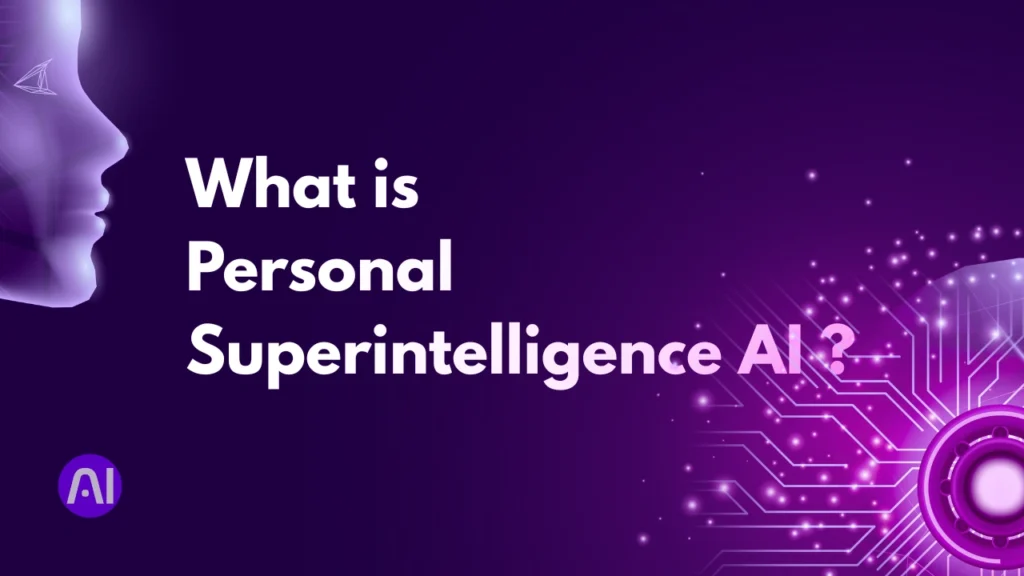
Personal Superintelligence (PSI) is an advanced type of artificial intelligence that learns from you and works with you. It doesn’t just answer questions or do simple tasks, it understands your goals, your habits, and your way of thinking. Over time, it gets better at helping you in your own personal life.
PSI is meant to be more than a tool. It acts like a smart assistant that grows with you. It can help you plan your day, learn new skills, make better choices, and even improve your health or relationships. Instead of giving basic answers, it supports your long-term growth.
Companies like Meta are already working on PSI. They’re adding it to smart glasses and other devices that can see and hear what you do. This helps the AI give more useful and timely advice, based on your real surroundings.
In the future, PSI could help people with learning, jobs, personal goals, and even emotional support. What makes it special is that it’s designed for you, to think with you, not for you.
What is an Example of a Superintelligence?
A superintelligence is an AI system that is smarter than the best human experts in many areas. It can learn fast, think deeply, and solve problems in ways people cannot. Even the best scientists or doctors would struggle to keep up.
For example, imagine a doctor facing a rare illness. A superintelligent AI could study millions of medical records in seconds and suggest the best treatment. It might even find options that humans have missed.
Another example could be personal life help. A smart assistant powered by superintelligence could guide you through hard choices, like picking a career or solving a problem in your relationship, by understanding your personality, goals, and past actions.
While full superintelligence hasn’t been reached yet, early signs are appearing in today’s most advanced AI tools. PSI is the step that brings that power into people’s everyday lives.
Conclusion: The Future with Personal Superintelligence
Personal Superintelligence (PSI) is no longer just a future idea, it’s already in motion. Meta, under Mark Zuckerberg’s leadership, is making major moves to turn PSI into a real part of everyday life. Their goal isn’t to replace people with machines, but to build AI that helps individuals grow, learn, and succeed in personal ways.
Zuckerberg’s vision stands out from others in the tech world. While some companies focus on automation and job replacement, Meta is choosing to empower people. Through smart devices like AI-powered glasses, PSI will become more aware of your world, offering support that fits your goals and context.
PSI isn’t just smart, it’s personal. It learns from you, works with you, and aims to improve your life, step by step. It could help with anything from learning new skills to making better choices and even improving well-being.
As AI continues to advance, the coming years will shape how it fits into our lives. Meta is betting on a future where superintelligence is not something to fear, but something that helps people become more, not less. The choice is clear: build AI that supports humans, not one that replaces them. And with PSI, that future is getting closer every day.
AI Ashes has also covered latest drop from OpenAI, OpenAI Released its Open-Weight Models after 5 Years…
Frequently Asked Questions
1. What exactly is Personal Superintelligence (PSI)?
Personal Superintelligence, or PSI, is a new form of AI designed to deeply understand and support individuals. Unlike simple assistants, PSI learns from your behavior, environment, and goals, helping you grow, make decisions, and live more effectively over time.
2. What is Meta doing to build PSI?
Meta has created a special division called Meta Superintelligence Labs, hired top AI researchers, and is investing billions of dollars into infrastructure and training. Their goal is to develop PSI systems that work across smart devices and integrate with everyday life.
3. Why does Zuckerberg think superintelligence is near?
Mark Zuckerberg has said that Meta’s AI models are beginning to show signs of self-improvement. Although the progress is slow, he believes it’s clear that the path to superintelligence has already begun.
4. How is Meta’s PSI approach different from other companies?
While some companies are focused on using AI to automate jobs and run large systems, Meta wants to build AI that supports personal growth. Instead of replacing people, Meta’s goal is to help individuals do more, learn faster, and reach their own goals.
5. Where will PSI be used?
PSI won’t be limited to phones or desktops. Meta plans to use it in smart glasses and wearables, devices that can see and hear what you do. This allows the AI to respond in real-time based on what’s happening around you.
6. Are there any risks with PSI?
Yes, PSI comes with serious concerns around safety, privacy, and misuse. Zuckerberg has said that Meta will move carefully, and some of the most advanced AI models may not be released publicly to avoid harm.
7. When can we expect to use PSI?
While there is no fixed release date, Zuckerberg has mentioned that early versions of PSI could become available within the next few years. Meta is actively building the foundation now.
8. What is a real-world example of superintelligence?
Imagine an AI that can analyze millions of medical records in seconds and suggest the perfect treatment plan for a patient, something no doctor could do alone. Or, a personal AI that helps you make tough life choices by understanding your past, values, and goals better than you do.
9. What are people saying about PSI on Reddit and Quora?
Discussions are mixed. Some users are excited about the potential of having a truly helpful AI assistant. Others are more cautious, raising concerns about trust, data control, and how much influence tech companies should have over personal decision-making.

